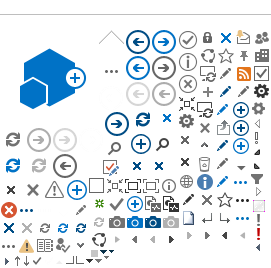CURRICULUM
DESCRIPTIONOF THE CURRICULUM AND THE SEMESTER STRUCTURE
The Master’s has a duration of two years divided into four semesters.
At the end of the fourth semester, the student must submit a
dissertation to defend at the grade exam. The first half of the program
is on-campus. The students attend regular courses where they get
theoretical, methodological, and practical. In the second half of the
Master’s, students split into dissertation seminars according to their
research subject. In that stage, the work is exclusively concentrated
on the dissertation project.
The Curriculum of the Master’s in Political Sociology consists of: 11
subjects, 2 dissertation seminars, and 3 workshops. The subjects and
dissertation seminars are grouped in five different training fields:
1) Basic Area. .
It provides the students with courses that enable them to have a solid
knowledge of the subject matter, theories, approaches and research lines
of sociological and political theory. It includes four subjects: Political
Sociology I and II, Social Theory, and Political Theory.
2) Area of Sociopolitical Realities. .
Training in this Master’s includes the acquisition of an adequate and sufficient
knowledge of the social and political history of Mexico and Latin America. This
area includes two subjects: Politics and Society in Latin America, and Politics
and Society in Mexico.
3) Area of Training in Methodology. .
Methodology courses are aimed at promoting training of human resources
capable of conducting this kind of systematic social researches:
epistemological fundamentals of social sciences’ methodology, research
design theory, elements for gathering and analyzing quantitative and
qualitative information. The subjects are: Research Design I and II,
Quantitative Methods, and Qualitative Methods.
4) Specialization Areas. .
The Master’s offers specialization areas in elective courses and
dissertation seminars. The research lines followed by the Institute’s
scholars provide de material to support the specialization of the
students and the development of their grade dissertations. The subjects
in this area are: Specialization Seminar, and Dissertation Seminar I
and II.
5) Complementary Workshops.
Also, the program has three supporting Workshops: Computing Workshops
(use of the SPSS), Writing Workshop, and Oral History Workshop.
ON-CAMPUS STAGE
This stage includes the first two semesters of the Master’s.
The courses during this stage aim at consolidating the students’
training in the field of political sociology.
At the end of the second semester, the student must submit a
dissertation project, which will have to be approved in the Research
Design Workshop. In the second semester, this project will be developed
and optimized to present it for approval at the end in the workshop.
Also, in the second semester, the Master’s Direction will assign each
student an advisor who will provide the necessary counseling to finish
the research project.
As an additional complement for the subjects and Specialization and
Dissertation Seminars, from the second semesters to the end of the
program the students must attend the Permanent Seminar on Political
Sociology where the advancements and the results of researchers from
renowned scholars from the Institute and other academic institutions
are presented. The purpose of this seminar is to promote a space for
communication between our academic community and experts in the field
capable of fostering an in-depth collective debate on political sociology.
Also, it is aimed at showing the different perspectives in the students’
preferred subject matters so the analysis and actualization of contemporary
themes and methodologies contributes to their training.
RESEARCH AND DISSERTATION WRITING STAGE
This stage covers the last two semesters of the Master’s. Thus,
in the third and fourth semesters the students will undertake a
research project in the context of one of the Dissertation
Seminars. Every student must take a specialization seminar and
two dissertation seminars, which will be selected by the Master’s
Direction according to de subject matter of each one’s dissertation.
Being training seminars, the courses must include:
a) A theoretical overview of the state of the art of political sociology,
or political science in several fields of study.
b) The review and debate over the students’ researches, which will turn
into their final degree dissertations.
During the third semester, the students engage in writing their thesis with
an emphasis on the theoretical and context chapters. They must gather the
information necessary to support their dissertation or case study. Consequently,
the students are allowed to be absent from the Institute to spend research stays
abroad or fieldwork around the country for two months. With the information
gathered in the third semester and with the research progress done, the students
engage in analyzing the results and writing the last chapters of the dissertation
during the fourth semester.

